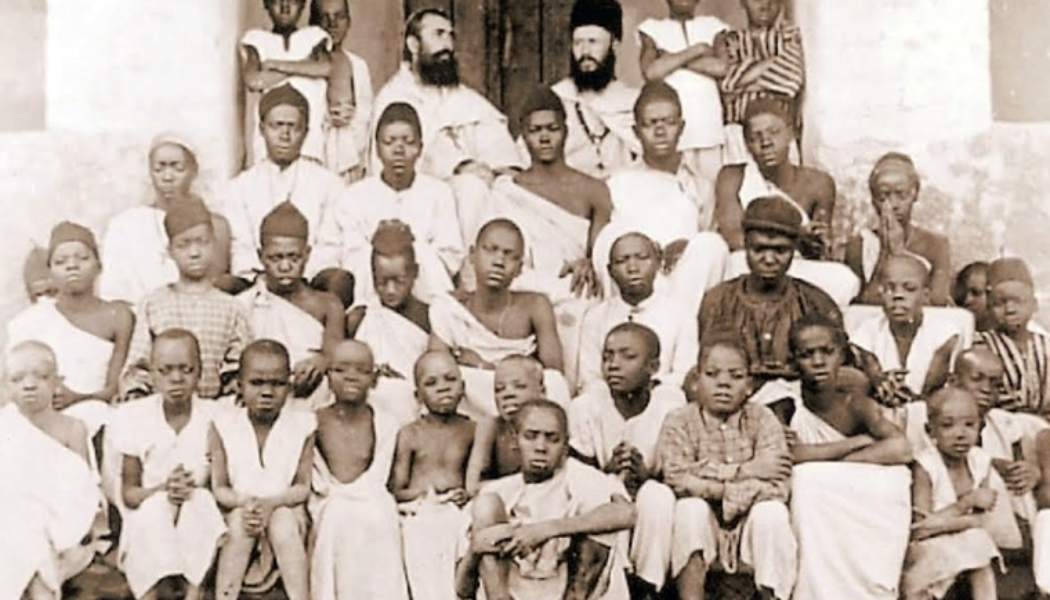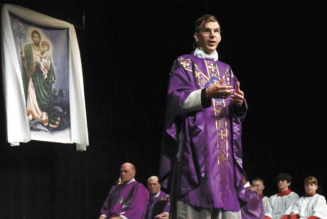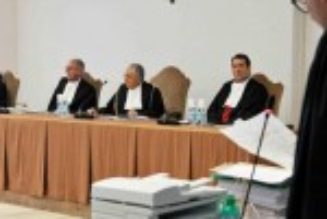
At the beginning of June, we remember two critical stages in the Church’s fight against the sexual abuse of minors.
The first is the 20th anniversary of the Charter for the Protection of Children and Young People, adopted by the U.S. bishops during their epochal June 13-15, 2002, meeting in Dallas. It established procedures for addressing the sexual abuse of minors by Catholic clergy, as well as provided guidelines for reconciliation, healing, accountability and abuse prevention.
The second is the third anniversary of Vos Estis Lux Mundi (“You Are the Light of the World”), Pope Francis’ motu proprio that established new norms to combat sexual abuse in the Church universal and to ensure that bishops and religious superiors — who had been largely exempted from the Dallas Charter and its three subsequent revisions — would also be held accountable for the way they handled accusations. Vos Estis entered into force on a three-year experimental basis on June 1, 2019, and is, therefore, now up for renewal and revision.
The beginning of June, however, is a fitting time to recommit to the Church’s fight against sexual predation against the young and vulnerable for another reason: the celebration on June 3 of the liturgical memorial of the Ugandan Martyrs. Sts. Joseph Mkasa, Charles Lwanga, Denis Sebuggwawo and their 19 companions were martyred not just out of fidelity to Christ just a few years after Christianity was introduced to their country, but in explicit condemnation and heroic defense of young male pages from a king’s desire to sexually molest them.
It would be fitting for them to be named patrons of the Church’s persevering efforts for child protection.
When King Mwanga II arose in 1884 to the throne of Buganda — the southern part of what is now Uganda — he appointed Joseph Mkasa, baptized two years before and a loyal servant of Mwanga’s father King Mtesa, as majordomo, or chief-in-charge, of his palace and court. The new king literally owed his life to Mkasa, who a few years before courageously captured and killed with his bare hands a venomous snake that was threatening the then-prince’s life.
In addition to his official duties, Mkasa was also the de facto leader of the nascent Catholic community, since in 1882 the aging and paranoid King Mtesa had banished the Missionaries of Africa, called the White Fathers, from the realm. Their departure left Mkasa as the principal catechist of a growing number of Catholic catechumens, whom he powerfully persuaded to renounce slavery, polygamy and other practices against the Gospel, and to dedicate themselves heroically to serving those in need.
Upon becoming majordomo, Mkasa appointed a young catechumen, Charles Lwanga, to supervise the court pages. A short time later, the two of them began to observe that the new king was homosexually attracted to the teenage pages and was seeking to have them brought into his private company. Bugandan culture at the time accommodated such sexual abuse, especially coming from someone in a position of power.
Though just a neophyte and a catechumen, Mkasa and Lwanga, however, knew that such behavior was absolutely incompatible with the Gospel and determined to do all that they could as good shepherds to protect the sheep entrusted to them from the ravenous wolf in regal garb.
Even though Mkasa and Lwanga were willing to die to defend the pages from the king’s moral corruption, they did not have a death wish. They first tried to persuade those pages who could easily disappear from court without any harm coming to their families to run away. With various ruses, they next began to ensure that the pages who remained were “otherwise occupied” whenever the king sent for them. Third, they began to teach the pages various ways to avert the king’s advances if the other measures failed.
These stratagems worked for a time, but the king eventually figured out what was going on. No longer able to avoid a direct confrontation, Mkasa bluntly rebuked the king for his perverse attraction to the boys in his service. Mwanga was consumed with anger against Mkasa and his fellow Christians who were helping the boys to avoid his advances. Under the pretext of Mkasa’s disloyalty for putting the commands of another king, “the God of the Christians,” over his own, Mwanga had him executed.
A few months later, when the King returned from a trip to see one of the routine victims of his sordid desires receiving catechetical instruction — which obviously involved teaching on the sins of homosexual activity and sexual abuse — he summoned the catechist, St. Denis Sebuggwawo, put a spear through his chest and had the court executioners hack his corpse to pieces.
The following day the king rounded up all the pages and gave them a choice between the Christian God and him, between prayer and the predator, between life and death. He asked “those who do not pray” to stand with him and “those who pray” to stand opposite. Three sided with the king. Charles Lwanga and 26 pages — 16 Catholics and 10 Anglicans — sided with God. Mwanga sentenced the latter to be burned alive, which they were, after brutal torture, on Ascension Thursday, June 3, 1886.
What do we learn from their heroic example?
Those called to lead Christ’s flock learn the gift of courage, hatred for sin and a love for God’s children even to the point of death.
All members of society, inside and outside the Church, learn two valuable lessons, as well.
First, King Mwanga was not an ecclesiastical figure. The vast majority of abuse that takes place in society does not occur within the Church, as slanted media attention might sometimes erroneously suggest. Therefore, sincere members of the Church and society should work just as hard to extirpate abuse in those places — public schools, homes with unrelated adult males, athletic programs, Hollywood and other situations with high incidence rates of sexual abuse of minors — as they do in the Church.
Secondly, King Mwanga came to the throne at 16 years of age and executed the Ugandan martyrs (all of whom were between 14 and 25 years of age) when he was 18 years old. Sts. Joseph Mkasa, Charles Lwanga and Denis Sebuggwawo weren’t therefore trying to stop the depravities of a lecherous sexagenarian, but of a boy who was only a few years or months older than his victims. Mkasa and Lwanga knew, however, that such abuse was just as disastrous for those who suffer it, even for those who were consenting to the king’s designs.
If we as a society are truly against the sexual abuse of minors, then we must seek to eliminate it, even when the perpetrators are other minors. Most of our society, however, not only ignores but enables — through permissive sexual education curricula and a casual approach to teenage sexual activity — the damage done by peer-on-peer sexual abuse, such as occurs when high school seniors prey on freshmen, popular sophomores go trophy hunting after their weaker classmates, or eighth-graders use their classmates for their own gratification.
The Ugandan martyrs gave their lives to protest young people being taken advantage of in this way, even in those cases when the victims, out of fear or desperate ambition, seemed to be consenting to the naked abuse of power. The Ugandan martyrs teach us the broader context of child protection: Unless we confront at its roots the culture brought about by the sexual revolution’s hedonistic utilitarianism, the young will continue to suffer as collateral damage.
As we mark the anniversaries of the Dallas Charter and of Vos Estis and recommit to furthering their objectives, we ask the intercession of the Ugandan martyrs, that we might imitate their love for God and for young people, their horror for all sexual sins that injure the young, and their courage in the face of modern Mwangas.
Join Our Telegram Group : Salvation & Prosperity









